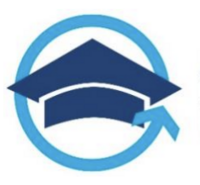Organization Opposing BDS
Mission The Academic Engagement Network (AEN) is an organization of American university and college faculty and staff formed for the purposes of opposing the Boycott, Divestment, and Sanctions (BDS) movement, standing for academic freedom and freedom of expression, and supporting education and robust conversation about Israel in the academy. AEN also opposes antisemitism where it appears on campus. In our view, the BDS movement has had a pernicious impact on university life – it stifles academic inquiry and exchange, promotes one-sided narratives, and exacerbates divisions between social groups. The movement also contributes to the politicization of the academy, which it enlists as a megaphone in a broader delegitimization campaign against Israel. The AEN works to oppose the BDS movement’s efforts and to counter its narrative, which imposes crude labels, false analogies, and simplistic claims on a range of complex subjects. At the same time, AEN reemphasizes and supports important ideas central to academic life – academic freedom, freedom of speech, freedom of association, open scholarly debate and exchange, and constructive dialogue. To achieve these ends, AEN supports and works with faculty members in an extended network and cooperates with specialized partner organizations to: Organize and support innovative campus programming about Israel and the Middle East Speak publicly about the false claims of the BDS movement to strengthen support for peace and understanding in the Middle East Advise campus presidents, chancellors, deans, and leaders on BDS, Israel, antisemitism and related issues Mentor students in their own efforts to respond to BDS campaigns on their respective campuses Encourage academic institutions to forge and enhance U.S.-Israel academic ties, including faculty exchanges, research collaborations, and study abroad programs Contribute to the conversation on campus and in the public commons about BDS and academic freedom through support for the development of courses, lectures and public programs, panel discussions, symposia, guides and resource books, pamphlets, podcasts, individual essays, and op-eds.
